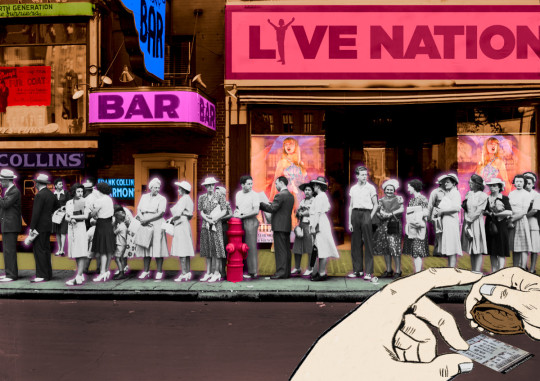#financial income
Explore tagged Tumblr posts
Text
Avida CityFlex BGC - 311
Live in the heart of the city! Modern studio unit (36.96 sqm) at Avida CityFlex BGC (2015). Prime location, perfect for urban professionals or investors. Contact JM Listings!
📌 UNIT 311 AVIDA CITYFLEX TOWERS BGC, TOWER 2, 7TH AVE. CORNER LANE T NORTH, BGC, TAGUIG Property Features TYPE: Residential CondominiumStudio, 1 BathTower 2Floor Size: 36.96 sqmAS-IS-WHERE-IS BasisYear Built: 2015 Terms: 20% Min Down Payment80% Balance up to 5 yrs at 10% Annual interest rate8% (more or less): Title Transfer Cost & Home Loan Bank chargesTaxes: Creditable Withholding Tax or…

View On WordPress
#beginners#buy home#financial#financial income#financial investment#flip home#home investment#home sweet home#house for sale#how to buy a home early#how to start investing#income#invest in home#investments#make money#manila#noli alleje#opportunities#passive income#passive income for beginners#Philippines#property#property investment#Real Estate#real estate investment#rent home#sell home#south of market taguig city#stock market
0 notes
Text






#wealthy woman#feminine investor#investor#rich life#rich girl#rich aesthetic#rich#wealthy#wealth#freedom#travel#abundance#abundance affirmations#affirmations#money#money affirmations#aesthetic#finances#finance#traveling#healthy#attract#luxury aesthetic#plenty of money#money loves me#abundant#financial freedom#affirm#passive income princess#i am affirmations
212 notes
·
View notes
Text
hey with rent paid we have $0 & I can go a while without eating so it's not super urgent but I've been having 1 small meal a day for like a couple weeks now could anyone spare like $20-30 so I can order something filling, & if I end up getting more then that'll just go towards groceries...
229 notes
·
View notes
Text
uhh oh!!! unexpected hospital stay 🤪

last night i fell flat on my stomach tripping over absolutely nothing, so i went in to get checked. everything looks fine aside from a scraped hand and knee but they kept me for overnight monitoring just in case. this, of course, happened while jose is out of town, so ngl chat it was a rough time!!! baby spent the entire night gettin funky, blissfully unaware of her mom's moment of lonely mortal terror.
I've never had the nuts to ask but idk how much this stay will cost and I'll be officially without an income in two weeks. anything you could throw my way would be so appreciated. 💛
#m2a#pregnancy#I've even felt shy about people online asking about my registry i am NOT good at asking ANYTHING#the bulk of insecurity with parenthood has been the impending loss of income#I've worked since i was 15 years old and I'm like!! aaaa!! loss of powerrr!!! 😆#even tho it's the best decision on a personal and financial level#now I'm sitting in a hospital bed thinking well everything is fine did i really need to get scared and come in#freaking alone? no less??#yeah dark night for mod but baby don't care#i was almost panicking in public right after i fell waiting for her to move but fucking bless her she didn't make me wait long#nothing can stop her boogie
235 notes
·
View notes
Text
{ MASTERPOST } Everything You Need to Know about Repairing Our Busted-Ass World
On poverty:
Starting from nothing
How To Start at Rock Bottom: Welfare Programs and the Social Safety Net
How to Save for Retirement When You Make Less Than $30,000 a Year
Ask the Bitches: “Is It Too Late to Get My Financial Shit Together?“
Understanding why people are poor
It’s More Expensive to Be Poor Than to Be Rich
Why Are Poor People Poor and Rich People Rich?
On Financial Discipline, Generational Poverty, and Marshmallows
Bitchtastic Book Review: Hand to Mouth by Linda Tirado
Is Gentrification Just Artisanal, Small-Batch Displacement of the Poor?
Coronavirus Reveals America’s Pre-existing Conditions, Part 1: Healthcare, Housing, and Labor Rights
Developing compassion for poor people
The Latte Factor, Poor Shaming, and Economic Compassion
Ask the Bitches: “How Do I Stop Myself from Judging Homeless People?“
The Subjectivity of Wealth, Or: Don’t Tell Me What’s Expensive
A Little Princess: Intersectional Feminist Masterpiece?
If You Can’t Afford to Tip 20%, You Can’t Afford to Dine Out
Correcting income inequality
1 Easy Way All Allies Can Help Close the Gender and Racial Pay Gap
One Reason Women Make Less Money? They’re Afraid of Being Raped and Killed.
Raising the Minimum Wage Would Make All Our Lives Better
Are Unions Good or Bad?
On intersectional social issues:
Reproductive rights
On Pulling Weeds and Fighting Back: How (and Why) to Protect Abortion Rights
How To Get an Abortion
Blood Money: Menstrual Products for Surviving Your Period While Poor
You Don’t Have to Have Kids
Gender equality
1 Easy Way All Allies Can Help Close the Gender and Racial Pay Gap
The Pink Tax, Or: How I Learned to Love Smelling Like “Bearglove”
Our Single Best Piece of Advice for Women (and Men) on International Women’s Day
Bitchtastic Book Review: The Feminist Financial Handbook by Brynne Conroy
Sexual Harassment: How to Identify and Fight It in the Workplace
Queer issues
Queer Finance 101: Ten Ways That Sexual and Gender Identity Affect Finances
Leaving Home before 18: A Practical Guide for Cast-Offs, Runaways, and Everybody in Between
Racial justice
The Financial Advantages of Being White
Woke at Work: How to Inject Your Values into Your Boring, Lame-Ass Job
The New Jim Crow, by Michelle Alexander: A Bitchtastic Book Review
Something Is Wrong in Personal Finance. Here’s How To Make It More Inclusive.
The Biggest Threat to Black Wealth Is White Terrorism
Coronavirus Reveals America’s Pre-existing Conditions, Part 2: Racial and Gender Inequality
10 Rad Black Money Experts to Follow Right the Hell Now
Youth issues
What We Talk About When We Talk About Student Loans
The Ugly Truth About Unpaid Internships
Ask the Bitches: “I Just Turned 18 and My Parents Are Kicking Me Out. How Do I Brace Myself?”
Identifying and combatting abuse
When Money is the Weapon: Understanding Intimate Partner Financial Abuse
Are You Working on the Next Fyre Festival?: Identifying a Toxic Workplace
Ask the Bitches: “How Do I Say ‘No’ When a Loved One Asks for Money… Again?”
Ask the Bitches: I Was Guilted Into Caring for a Sick, Abusive Parent. Now What?
On mental health:
Understanding mental health issues
How Mental Health Affects Your Finances
Stop Recommending Therapy Like It’s a Magic Bean That’ll Grow Me a Beanstalk to Neurotypicaltown
Bitchtastic Book Review: Kurt Vonnegut’s Galapagos and Your Big Brain
Ask the Bitches: “How Do I Protect My Own Mental Health While Still Helping Others?”
Coping with mental health issues
{ MASTERPOST } Everything You Need to Know about Self-Care
My 25 Secrets to Successfully Working from Home with ADHD
Our Master List of 100% Free Mental Health Self-Care Tactics
On saving the planet:
Changing the system
Don’t Boo, Vote: If You Don’t Vote, No One Can Hear You Scream
Ethical Consumption: How to Pollute the Planet and Exploit Labor Slightly Less
The Anti-Consumerist Gift Guide: I Have No Gift to Bring, Pa Rum Pa Pum Pum
Season 1, Episode 4: “Capitalism Is Working for Me. So How Could I Hate It?”
Coronavirus Reveals America’s Pre-existing Conditions, Part 1: Healthcare, Housing, and Labor Rights
Coronavirus Reveals America’s Pre-existing Conditions, Part 2: Racial and Gender Inequality
Shopping smarter
You Deserve Cheap Toilet Paper, You Beautiful Fucking Moon Goddess
You Are above Bottled Water, You Elegant Land Mermaid
Fast Fashion: Why It’s Fucking up the World and How To Avoid It
You Deserve Cheap, Fake Jewelry… Just Like Coco Chanel
6 Proven Tactics for Avoiding Emotional Impulse Spending
Join the Bitches on Patreon
#poverty#economics#income inequality#wealth inequality#capitalism#working class#labor rights#workers rights#frugal#personal finance#financial literacy#consumerism#environmentalism
575 notes
·
View notes
Text
One of my perhaps unpopular opinions is being a full-time at-home caregiver (to a parent, a child, whomever) should absolutely be considered work and should absolutely be paid like having a conventional job.
Giving caregivers the financial stability and freedom to live as independently as possible is important, especially in terms of being somebody's caregiver. Both the carer and caree deserve to be stable, independent, and have their needs met.
#politics#us politics#i think it's very precarious to rely on one income in the sense of financial abuse#i for sure don't think this is a universal solution but i also don't think someone should be fucked over because...#...being a carer isn't a 'real job'. what the fuck is that line of thinking#caring is *the* full-time job. it's incredibly demanding work and so many places are... expecting that you can do it for free like#that's fucked up to me#it's great that *some* states have compensation for caregivers. it's not enough. yet.#i don't know why but this has been bothering me for literal weeks now
173 notes
·
View notes
Text
Ticketmaster jacks us for billions so it can pocket millions

NEXT WEEKEND (June 7–9), I'm in AMHERST, NEW YORK to keynote the 25th Annual Media Ecology Association Convention and accept the Neil Postman Award for Career Achievement in Public Intellectual Activity.

Corruption is a system of concentrated gains and diffused costs: cheaters make a lot of money, and their victims each lose a little. The cheater has a much larger pool of money to spend on keeping the scam going, and the victims need to pay again to fight the cheater.
Actually, it's worse. The victim pays once when they are cheated, then, they pay a second time (in time and/or money) when they fight back against the cheater.
But in order to fight back effectively, the victims need to band together – it doesn't make sense for one victim to pony up to counter the cheater, because the cheater stole from a lot of people and can therefore spend far more than the victim lost and still come out ahead.
This is the third time the victim pays: they pay the "collective action" tax of locating other victims, agreeing to a common strategy for fighting back, and then coordinating with all those co-victims to keep the campaign up.
But actually, it's even worse. Because most corruption isn't just dishonest, it's incredibly wasteful. Corruption involves stealing ten dollars from you to make a dime for the cheater. The polluter who gives you cancer rather than cleaning up their industrial process costs you millions in medical bills – and maybe costs your family the lifelong trauma and expense of living with your death. They pocket an infinitesimal fraction of those costs. The rest is just wasted. They're setting your house on fire to spare themselves the cost of a match to light their cigar.
This is yet another way in which the deck is stacked in favor of corruption. A victim of corruption is placed in a condition of precarity and misery from which is it difficult to marshal a counteroffensive. The cheater, meanwhile, is made stronger and more comfortable by their corrupt activities. Immiserated victims must undertake the hard, ongoing work of acting together to be effective against the cheater. The cheater answers only to themself, avoiding the collective action costs that the victims pay every time they seek to act.
All of this is why we have governments. A government is (said to be) a democratically accountable way to meet the concentrated power of the corrupt with the concentrated power of the victims of corruption. Governments are many things, but they are especially a way of solving the collective action problem of enforcing the rules against cheaters. This is partially in service to justice – no one likes to be cheated, and a society of rampant and routine cheating is unstable and prone to collapse.
But it's also a matter of efficiency. While it makes a certain kind of selfish sense for the cheater to liquidate our dollar to make their penny, from a societal perspective, it's a catastrophe. Letting Wall Street slumlords corner regional markets in single family dwellings makes large amounts of money for their investors, but it costs those cities unimaginable amounts in public services as their housing stock decays, homelessness spikes, and schools and public services crumble for want of local taxes.
The paltry sums that Flint's creditors extracted by insisting on switching to a chlorinated water-supply that leeched lead out of the city's water infrastructure are crumbs compared to the vast, lifelong costs of giving an all the children in a city lead poisoning, to say nothing of the costs to the city as a city nor forever tainted by this unspeakably evil crime.
This is why inequality – and its handmaiden, monopoly – is so dangerous. The more concentrated private wealth becomes, the harder it is for the state to police, and the more likely it is that this private wealth will corrupt our officials. We see this all around us – for example, when Supreme Court justices receive lavish gifts from billionaires whom they later rule in favor of:
https://pluralistic.net/2023/04/06/clarence-thomas/#harlan-crow
Through the neoliberal era – the past forty years of billionaire-friendly Reaganomics – we've seen increasing concentration in wealth, coupled to increasing collusion between the wealthy and the government to protect the corrupt against the public. Think of the IRS's long decay, in which it turned a blind eye to increasingly blatant tax evasion by the ultra-wealthy, while training its fire on working people who fudge a few bucks on their returns:
https://pluralistic.net/2022/04/13/taxes-are-for-the-little-people/#leona-helmsley-2022
Likewise, think of the governmental obsession with "welfare cheats," no matter what the cost to families who are kicked off food stamps and Medicaid:
https://armandalegshow.com/episode/medicaid-enrollment/
All this in the midst of a corporate crime-wave that is not only unpunished, it's utterly unremarked-upon:
https://pluralistic.net/2021/12/07/solar-panel-for-a-sex-machine/#a-single-proposition
This emphasis on benefits cheating and indifference to corporate crime really highlights the drag that corruption places on a society's efficiency. Even if you believe that there's a lot of welfare fraud (there isn't!), the dollar in "undeserved" food stamps spent by a cheater costs society…a dollar. Meanwhile the dollar that a corporate criminal makes by skimping on workplace safety costs society thousands of dollars to care for the worker who is then maimed on the job.
This is very easy to see in the world of corporate environmental crime. The "social cost of carbon" measures the total cost of pollution: the injuries caused by marinating in fossil fuel extraction, processing and combustion byproducts; as well as the loss of life and property from climate events. These costs are blistering, so high that every MWh of renewable power we bring online saves us $100 in social carbon costs:
https://pluralistic.net/2024/05/30/posiwid/#social-cost-of-carbon
Governments that sleep on corporate crime are objectively governing badly. That's why the antitrust failures of every US presidential administration from Carter to Trump are so damning: they set the stage for later corruption that would not only be carried out on a larger scale than smaller firms could accomplish, but also for those large firms to corrupt the political process.
This is the Ticketmaster story. The superpredator that is today's Ticketmaster is the end-point of a series of ever-more corrupt mergers, waved through by every-more pliable presidential administrations. It was bad enough when Bush I allowed Ticketmaster to gobble up Ticketron in 1990. After all, the company had already proven itself to be a cesspit of corrupt, bullying activity.
The Ticketron acquisition kicked off a two-decade-long corporate crime-spree that produced a mountain of evidence proving Ticketmaster's nature as an inherently corrupt enterprise that acquired power for the purpose of abusing that power, at the expense of creative workers, the public, and the owners of venues:
https://www.rollingstone.com/music/music-news/pearl-jam-taking-on-ticketmaster-67440/
Despite this, the Obama administration waved through an acquisition that was obviously far more dangerous that the Ticketron caper: the 2010 merger between Ticketmaster and the concert promoter Live Nation:
https://en.wikipedia.org/wiki/Live_Nation_Entertainment#History
After a decade and a half of vertical monopoly power – Ticketmaster/Live Nation controlling ticketing, promotion and venues – the company has grown from a dangerous octopus with its tentacles twined around the industry into a kraken that is strangling every kind of live event and everyone who earns a living from them. This has produced an ever-more obvious string of scandals, most notably the company's assault on Swifties:
https://pluralistic.net/2022/11/20/anything-that-cant-go-on-forever-will-eventually-stop/
A combination of mounting public outrage (with Swifties at the vanguard) and the Biden administration's generational enthusiasm for smashing corporate power has led, at last, to a reckoning with the Ticketmaster kraken:
https://pluralistic.net/2024/04/30/nix-fix-the-tix/#something-must-be-done-there-we-did-something
Ticketmaster is a famously opaque organization. When Rebecca Giblin and I were working on Chokepoint Capitalism, our book on monopoly and creative labor markets, we were able to speak on the record to insiders from every part of the industry, except live performance:
https://chokepointcapitalism.com/
As soon as we raised Ticketmaster/Live Nation with club owners and other events industry insiders, they'd go pale and quiet and tell us that they didn't feel comfortable staying on the record. TM/LN has a well-deserved mafia-style reputation for savage retaliation against snitches.
With the DOJ Antitrust Division chasing Ticketmaster through the courts, we're starting to get a rare, on-the-record glimpse of TM/LN's operations, as its internal documents find their pay into court records. In response Ticketmaster's spokesliars have embarked on an epic spin campaign, to "contextualize" these damning numbers and paint the company as a weak, low-margin business that has been unfairly set-upon by the bullies at the DOJ.
In his BIG newsletter, Matt Stoller offers a spectacular, must-read breakdown of these documents and the ensuing spin:
https://www.thebignewsletter.com/p/is-ticketmaster-telling-the-truth
Stoller starts with Ticketmaster's insistence that it is barely profitable. Though this is true on paper, the numbers just don't add up. For one thing, anyone who's bought a ticket can see, printed on its face, TM's junk fees: "a 'service fee' without any obvious service [and] a 'convenience fee' that is anything but convenient."
Far more damning is a comparison between the price of a Ticketmaster ticket in the US vs the EU. The EU has legally mandated competitive ticketing, and the tickets there are far cheaper. A US ticket to see Taylor Swift will run you $2,600 – the same ticket costs $340 in the EU. As Stoller writes:
An American could fly to Paris, spend a few nights at a nice hotel, see a Taylor Swift concert, and fly back, for less than it costs to see that same show in the U.S.
How to make sense of this contradiction? How can Ticketmaster show such a low profit margin on its books but somehow end up costing event-goers such an absurd premium?
Start with the fact that Ticketmaster has three businesses, not just one. They sell tickets, but they also promote concerts (that is, front the money for personnel, travel and marketing), and they also own a bunch of the largest and most profitable venues in the country.
This allows them to play a shell-game that's very similar to (and possibly not actually different from) money-laundering, where money is shuffled between entities in order to shield it from creditors, suppliers or tax agents:
https://www.thebignewsletter.com/p/explosive-new-documents-unearthed
But this presents a problem for Ticketmaster. They're a publicly traded company and their investors demand high returns. And unlike performers or venue owners, investors have power over Ticketmaster management. Keeping "margin per ticket" number as low as possible lets Ticketmaster minimize the revenue it has to share with the people who actually do the work and invest the capital in live performances. But for investors, they need to show another number, one that's as high as possible, to keep the investors happy.
That number is "Adjusted Operating Income" or AOI. While gross margins are the difference between the face value of a ticket and the sum remitted to the venue and the performer, AOI factors in all the other revenue TM/LN books from that ticket, like kickbacks. TM/LN's AOI is very healthy: it's 37% on tickets and 61% on promotions.
Those sums delight TM/LN's investors, and they express their joy through lavish executive compensation packages. CEO Michael Rapino is America's fifth-highest paid CEO, at $139m/year (that's eight times the Fortune 500 average). His sidekick Joe Berchtold is America's highest paid CFO, at $54m. The total AOI for TM/LN is $732m/year – and 19% of that is being paid to two of its execs.
But LN/TM has a third line of business: operating venues. The AOI for these venues is just 1.7%. If this were a normal, cutthroat business, you'd expect those same return-focused investors to insist on their handsomely compensated execs selling off that low-margin turkey. But nevertheless, TM/LN keeps those venues on its books.
When those execs talk to the public, they use the poor profit margins of ticketing and the poor AOI on venues to plead poverty: "how can we be a monopoly when we're barely scraping by?"
But when they talk to the investors who decide whether to pay them 800% of the S&P500 average, they are more forthcoming.
Keeping the margins low on tickets – and making up the money with kickbacks and other corrupt payments – means that potential rival ticketing firms can't afford to get into the business. Without the venue and promotion business, those rivals wouldn't be able to command kickbacks. They'd have to subsist on the rock-bottom margins that are competitive with Ticketmaster.
Likewise those venues: ownership of key venues lets Ticketmaster/Live Nation force out credible rivals in important markets, and keep new ones from emerging, because again, they'd have to make a living on that paltry 1.7% AOI (or the even lower profit margins!).
As Joe Berchtold, the highest-paid CFO in America, told an analyst:
I don't think Concerts AOI per fan is a logical way to look at it. I think if you look at how we've talked about our business, we've talked about our business across the multiple pieces. So you have to look at it, what's the concerts plus sponsorship plus ticketing AOI per fan.
Berchtold is paid roughly $26,000/hour. Those words take roughly 25 seconds to utter, so that's a $7.20 explanation, but it contains a wealth of information – it's basically the DoJ's case in a nutshell.
But Stoller points out a curious fact that isn't captured here. Remember when I told you that TM/LN's NOI is $732m/year? What I didn't mention is the company's gross revenue: $16.7 billion.
When TM/LN talks about how shitty their business is, and therefore they can't be a monopoly, this is the trump card. How could a company creaming off a mere $732 million off $16.7 billion in gross revenue be a monopolist with "pricing power"?
This is where understanding corruption helps clarify our understanding and cut through the bullshit. Corruption is vastly wasteful. In order to extract $732m from $16.7b, TM/LN has to engage in a lot of wasteful and corrupt activities. They have to bribe other key players in the system, spend vast fortunes on lobbying, and generally do a lot of unproductive things with their money.
This is concentrated gains and diffuse losses. In order to command the highest salary of any American CFO, Berchtold has to cook up and maintain this process. In order to earn his $139m/year, Rapino has to play mafia don and keep everyone is his supply chain sufficiently terrorized or sufficiently greased to maintain omerta.
These two men take home a fifth of Ticketmaster's net income because they possess a rare and valuable skill. They are able to obfuscate a corrupt arrangement, enrobing it in layers of performative complexity, until the average musician, concertgoer, or lawmaker, can't understand it. Any attempt to unravel it will induce a deadly, soporific confusion. The investment industry term for his is MEGO (My Eyes Glaze Over), the weaponization of complexity. A skilled MEGO artist can convince you that the pile of shit they're peddling is so large that there must be a pony under it somewhere.
Here's Stoller, de-MEGOfying the TM/LN story:
Live Nation has a giant capital intensive unprofitable division of putting on concerts, from which it skims for its real cash flow. But this leverage among different subsidiaries means that it has an incentive to push up the cost of concerts overall, not just for its own profit. This incentive operates in two different ways. One, since ticket fees are based on the price of a ticket, Live Nation seeks higher prices for tickets so it can move more cash to its Ticketmaster subsidiary. And two, since Live Nation itself gets rebates by overpaying for venues, it has the incentive to push up the cost of shows. No one can undercut Live Nation, as it’s a monopoly.
You might think that this is a lot of mental energy to expend on understanding live performances. If you're not trying to see Taylor Swift, does any of this matter?
It assuredly does. Understanding how Ticketmaster's shell-game works is critical to understanding the similar shell-games played by many other kinds of monopolists, who have wrapped their tentacles around all the other parts of our lives. As David Dayen and Lindsay Owens write for The American Prospect, the companies that avoided monopoly prosecution by ripping off suppliers have bled those suppliers dry, and now they're coming for their customers:
https://prospect.org/economy/2024-06-03-age-of-recoupment/
From groceries to plane tickets, rent to cab rides, Amazon to Ticketmaster, we are living through the "Age of Recoupment," when the long con of lowering prices to secure monopolies flips enters it final stage: greedflating the shit out of customers, and using the monopolist's power over regulators to avoid consequences.
Today, everywhere consumers turn, whether they are shopping for groceries at the local Kroger or for plane tickets online, they are being gouged. Landlords are quietly utilizing new software to band together and raise rents. Uber has been accused of raising the price of rides when a customer’s phone battery is drained. Ticketmaster layers on additional fees as you move through the process of securing seats to your favorite artist’s upcoming show. Amazon’s secret pricing algorithm, code-named “Project Nessie,” was designed to identify products where it could raise prices, on the expectation that competitors would follow suit. Companies are forcing you into monthly subscriptions for a tube of toothpaste. Banks have crept up the price of credit, so customers who cannot afford price-gouging in their everyday transactions get a second round of price-gouging when they put purchases on credit. Expedia is using demographic and purchase history data to set hotel pricing for an audience of one: you.
When these companies end up in front of angry attorneys general, DOJ lawyers, or an FTC investigation, they'll use the Ticketmaster/Live Nation playbook to try and wriggle off the hook. They'll point to some barely-profitable (or money-losing) part of their business and say, "How could a monopolist possibly be running a business this shitty?"
If the DOJ makes its case against Ticketmaster, it will set a precedent, both in court and in policy circles, for understanding how a monopolist's corruption works. Monopolists aren't always businesses with gigantic margins. Like other criminals, their corruption can produce spectacular wealth and spectacular waste at the same time.

If you'd like an essay-formatted version of this post to read or share, here's a link to it on pluralistic.net, my surveillance-free, ad-free, tracker-free blog:
https://pluralistic.net/2024/06/03/aoi-aoi-oh/#concentrated-gains-vast-diffused-losses
#pluralistic#Michael Rapino#matt stoller#monopoly#antitrust#trustbusting#monopolism#poormouthing#credit mobilier#corruption#kickbacks#shell game#financial engineering#flywheels#live nation#ticketmaster#take rate#Joe Berchtold#guillotine watch#aoi#accounting tricks#mego#adjusted operating income
220 notes
·
View notes
Text
listening to students tell me “yeah i can’t figure this out i’m just a girl 🤣” listening to my coworkers tell me “honestly i just can’t wait to become a stay at home girlfriend so i never have to work again!!” looking at my online feeds which have all become like pictures of cigarettes with a pink bow on them captioned “girlhood” i’m ACTUALLY going to start freaking the fuck out
#i’m not hating on my coworkers btw like. i won’t act like the thought of#getting to stay home and not having to work 40 hour weeks for meager earnings#while someone else handles expenses isn’t like obviously appealing#but it’s so. dangerous. to let your husband have full control of you financially#and one of them was explicitly saying she wants her job to be quote unquote taking care of her boyfriend#like yes we don’t dream of labor but girls please#you can find a job you’re interested in you can find a way to have control over your own income#please
229 notes
·
View notes
Text
One Rockwell 1808 Foreclosed 2BR
Own a 2BR haven in Makati's heart! ✨ Foreclosed unit at One Rockwell with parking. 97sqm, 18th floor, West Tower. Prime location near Power Plant Mall & Poblacion nightlife. Priced at ₱29.1M. Be the first to inquire! ☎️ +639686499260
📌 Unit 1808, 18/F, West Tower, One Rockwell, Rockwell Drive, Brgy. Poblacion, Makati City(With assigned parking slot) Property Features TYPE: 2 BR Residential Condominium📐 Floor: 97 sq.m🛌 2 Bedrooms🛀 2 Bathrooms🅿️ 1 Parking✅ 18th FL, West Tower✅ AS IS WHERE IS Basis Nearby Points of Interest Power Plant Mall • Kalayaan Makati Nightlife • City Garden GRAND Hotel Makati • Rockwell Center • St…

View On WordPress
#beginners#buy home#financial#financial income#financial investment#flip home#home investment#home sweet home#house for sale#how to buy a home early#how to start investing#income#invest in home#investments#make money#manila#noli alleje#opportunities#passive income#passive income for beginners#Philippines#property#property investment#Real Estate#real estate investment#rent home#sell home#south of market taguig city#stock market
1 note
·
View note
Text






#rich girl#wealthy woman#rich#wealth#attract#wealthy#rich aesthetic#luxury aesthetic#aesthetic#plenty of money#money#money affirmations#money loves me#abundance#abundance affirmations#abundant#finances#financial freedom#affirmations#affirm#feminine investor#passive income princess#i am affirmations#success#prosperity#finance#income#financially free
195 notes
·
View notes
Text



draw my life but narration and multiple pages are removed for privacy
#i did this for a personal introduction in uni#they wanted it to be as creative as we want#but anyway.. life update from me once again:#my family has not been financially stable and my dad's income can't keep us as stable as it used to#so i'll be opening commissions again soon#i'll be updating the sheet i previously had so please keep an eye out#thank you tag readers. i hope you are all well.. heres pie 🥧#normal tags#mi art stuff#comics#sketch#black and white#digital art#day in the life#kind of#personal art#art
22 notes
·
View notes
Text
Craig Harrington at MMFA:
The economic policy provisions outlined by Project 2025 — the extreme right-wing agenda for the next Republican administration — are overwhelmingly catered toward benefiting wealthier Americans and corporate interests at the expense of average workers and taxpayers. Project 2025 prioritizes redoubling Republican efforts to expand “trickle-down” tax cuts for the wealthy and deregulation across the economy. The authors of the effort’s policy book, Mandate for Leadership: A Conservative Promise, recommend putting key government agencies responsible for oversight of large sectors of the economy under direct right-wing political control and empowering those agencies to prioritize right-wing agendas in dealing with everything from consumer protections to organized labor activity. [...]
Project 2025 would chill labor unions' abilities to engage in political activity. Project 2025 suggests that the National Labor Relations Board change its enforcement priorities regarding what it describes as unions using “members' resources on left-wing culture-war issues.” The authors encourage allowing employees to accuse union leadership of violating their “duty of fair representation” by having “political conflicts of interest” if the union engages in political activity that the employee disagrees with. [Project 2025, Mandate for Leadership, 2023; National Labor Relations Board, accessed 7/8/24]
Project 2025 would make it easier for employers to classify workers as “independent contractors.” The authors recommended reinstating policies governing the classification of independent contractors that the NLRB implemented during the Trump administration. Those Trump-era NLRB regulations were amended in 2023, expanding workplace and labor organizing protections to previously exempt American workers. [Project 2025, Mandate for Leadership, 2023; The National Law Review, 6/19/23; National Labor Relations Board, 6/13/23]
Project 2025 would reduce base overtime pay for workers. The authors recommend changing overtime protections to remove nonwage compensatory and other workplace benefits from calculations of their “regular” pay rate, which forms the basis for overtime formulations. If that change is enacted, every worker currently given overtime protections could be subject to a slight reduction in the value of their overtime pay, which the authors claim will encourage employers to provide nonwage benefits but would effectively just amount to a pay cut. The authors also propose other changes to the way overtime is calculated and enforced, which could result in reduced compensation for workers. Overtime protections have long been a focus of right-wing media campaigns to reduce protections afforded to American workers. [Project 2025, Mandate for Leadership, 2023, Media Matters, 7/9/24]
Project 2025 proposes capping and phasing out visa programs for migrant workers. Project 2025’s authors propose capping and eventually eliminating the H-2A and H-2B temporary work visa programs, which are available for seasonal agricultural and nonagricultural workers, respectively. Even the Project 2025 authors admit that these proposals could threaten many businesses that rely on migrant workers and could result in higher prices for consumers. [Project 2025, Mandate for Leadership, 2023]
Project 2025 recommends institutionalizing the “Judeo-Christian tradition” of the Sabbath. Under the guise of creating a “communal day of rest,” Project 2025 includes a policy proposal amending the Fair Labor Standards Act to require paying workers who currently receive overtime protections “time and a half for hours worked on the Sabbath,” which it said “would default to Sunday.” Ostensibly a policy that increases wages, the proposal is specifically meant to disincentivize employers from providing services on Sundays as an explicitly religious overture. [Project 2025, Mandate for Leadership, 2023]
[...]
International Trade
Project 2025 contains a lengthy debate between diametrically opposed perspectives on international trade and commerce.Over the course of 31 pages, disgraced former Trump adviser and current federal inmate Peter Navarro outlines various proposals to fundamentally transform American international commercial and domestic industrial policy in opposition to China, primarily by using tariffs. He dedicates well over a dozen pages to obsessing over America’s trade deficit with China, even though Trump’s trade war with China was a failure and as he focused on China, the overall U.S. trade deficit exploded. Much of the rest of Navarro’s section is economic saber-rattling against “Communist China’s economic aggression and quest for world domination.”In response, Kent Lassman of the conservative Competitive Enterprise Institute promotes a return to free trade orthodoxy that was previously pursued by the Republican Party but has fallen out of favor during the Trump era.
The Heritage Foundation’s Project 2025 agenda would be a boon for the wealthy and a disaster for the working class folk.
See Also:
MMFA: Project 2025’s dystopian approach to taxes
#Economy#Project 2025#The Heritage Foundation#Donald Trump#Income Inequality#Mandate For Leadership#Federal Reserve#IRS#Student Loan Debt#Unions#Labor#Overtime Pay#Independent Contractors#H2A Visa#H2B Visa#Sabbath#Workplace Safety#Gender Pay Gap#Trade#Consumer Financial Protection Bureau
67 notes
·
View notes
Text
Every time I get to this point in Dracula, I think about how long it takes to even mention that Arthur will be a Lord.
Some readings suggest that Lucy chooses him because he's the most financially stable option. But, she never bothers to mention that he has a title in her letters, like that fact rarely crosses her mind. It doesn't feel like its at the forefront of her decision making.
It's Mina who mentions it. Not Lucy.
#dracula daily#her pitch about sewards assets is more about what she thinks Mina needs in life#financial stability because she doesnt have as much on her own#not that Lucy is doing calculations about income for her own choice#her mother though....(spoilers)
293 notes
·
View notes
Text
guys my venmo is @/treintanochesdeviolencia so basicallly im posting art/writing commission info soon but who wanna give me money just because just pls say its for a commission thanks
#venmo me#venmo#venmo app#paypal#financial help#financial assistance#donate to my venmo#need help#art#artists on tumblr#poor#money problems#make money online#earn money online#money#finances#business#income#commission#commission art#art commisions#commission open
26 notes
·
View notes
Text
it's okay to spend money. it's okay if you have trouble saving. it's okay to buy things that make you happy. it's okay to buy things that improve your life. it's not your fault the world we live in is so incredibly expensive and inaccessible. all you can do is your best. please don't neglect yourself.
#trying so hard to believe this#i dont have any income and i keep spending money on food and clothes and sometimes sensory aids / happy things#i dont have any savings#i just keep trying to stretch the money out as far as i can#but i feel so guilty because i know i'm going to run out#i guess once i hit $500 left i'll open a savings account#but hopefully by then i have SSI...#=/#self care#anticapitalism#anticapitalist#financial trauma#financial anxiety#softspoonie
264 notes
·
View notes